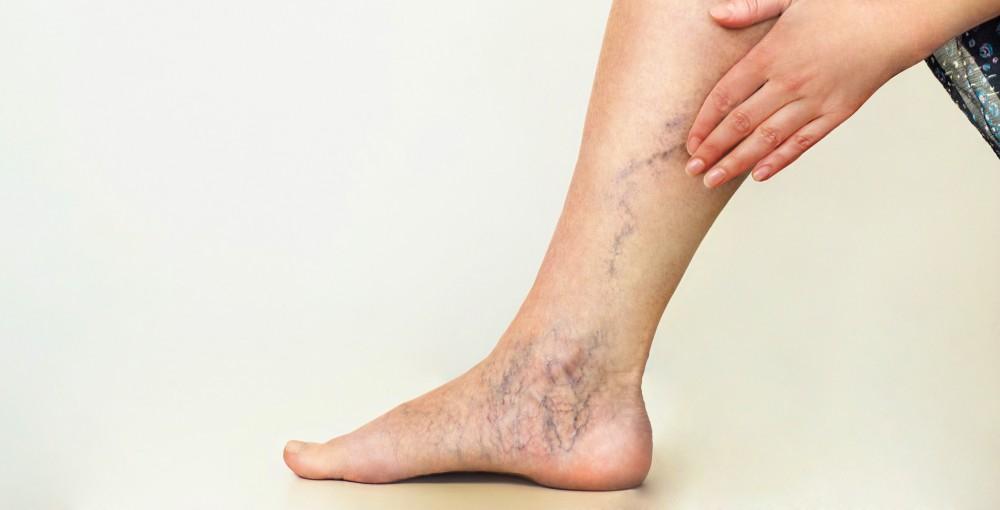What Kind of Specialist Treats Varicose Veins. These enlarged, twisted veins can cause discomfort, pain, and cosmetic concerns. If you are dealing with varicose veins, seeking the right healthcare professional is crucial. In this article, we will discuss the type of physician who can help with varicose vein issues.
- General Practitioner Or Primary Care Physician:
- Vascular Surgeon:
- Phlebologist:
- Dermatologist:
- Interventional Radiologist:
- What Kind Of Specialist Treats Varicose Veins?
- Vascular Surgeon:
- Phlebologist:
- Dermatologist:
- Interventional Radiologist:
- Are Varicose Vein Treatments Covered By Insurance?
- Medical Necessity:
- Insurance Plans:
- Preauthorization And Referrals:
- Out-Of-Pocket Expenses:
- Conclusion:
General Practitioner Or Primary Care Physician:
Your first point of contact for varicose vein issues is often a general practitioner or primary care physician. They can assess your symptoms, perform a physical examination, and provide initial advice on managing varicose veins. They may also recommend lifestyle modifications, such as regular exercise and weight management, which can help alleviate symptoms.
Vascular Surgeon:
For more severe cases or if conservative treatments are ineffective, you may be referred to a vascular surgeon. Vascular surgeons are specialists who diagnose and treat diseases of the blood vessels, including varicose veins. They have extensive knowledge and experience in surgical interventions for venous disorders. A vascular surgeon can offer various treatment options, including minimally invasive procedures and traditional vein surgery, depending on the severity and complexity of your condition.
Phlebologist:
Phlebology is a medical specialty dedicated to the diagnosis and treatment of venous diseases. A phlebologist is a physician who specializes in this field. They have specific expertise in evaluating and managing varicose veins, spider veins, and other venous conditions. Phlebologists often use non-surgical techniques, such as sclerotherapy, endovenous laser treatment, and radiofrequency ablation, to address varicose veins.
Dermatologist:
Dermatologists primarily focus on diagnosing and treating conditions related to the skin, hair, and nails. However, they may also have knowledge and experience in managing cosmetic aspects of varicose veins. Dermatologists can provide treatment options like sclerotherapy, which involves injecting a solution into the affected veins to make them shrink and fade away.
Interventional Radiologist:
Interventional radiologists are specialists who use imaging techniques to guide minimally invasive procedures for various conditions, including varicose veins. They utilize imaging technologies such as ultrasound or fluoroscopy to visualize the veins and perform treatments like endovenous thermal ablation or ultrasound-guided sclerotherapy. Interventional radiologists can be a valuable resource in managing complex varicose vein cases.
What Kind Of Specialist Treats Varicose Veins?
When it comes to treating varicose veins, several specialists can offer their expertise. The choice of specialist depends on the severity of your condition, the symptoms you experience, and the treatment options available in your area. The following healthcare professionals are commonly involved in the treatment of varicose veins:
Vascular Surgeon:
Vascular surgeons are physicians who specialize in the treatment of diseases affecting the blood vessels, including varicose veins. They have comprehensive knowledge of the circulatory system and are skilled in performing surgical interventions. Vascular surgeons can assess the severity of your varicose veins and recommend appropriate surgical procedures if necessary.
Phlebologist:
Phlebologists are specialists who focus specifically on venous diseases. They have expertise in diagnosing and managing varicose veins, spider veins, and other venous conditions. Phlebologists often use non-surgical treatments, such as sclerotherapy or endovenous laser treatment, to address varicose veins.
Dermatologist:
Dermatologists primarily specialize in diagnosing and treating conditions related to the skin, hair, and nails. While their expertise may not extend to surgical interventions, dermatologists can provide treatments like sclerotherapy for cosmetic aspects of varicose veins. They may also offer advice on managing any associated skin changes or complications.
Interventional Radiologist:
Interventional radiologists are specialized physicians who perform minimally invasive procedures using imaging techniques. They can effectively treat varicose veins using procedures like endovenous thermal ablation or ultrasound-guided sclerotherapy. Interventional radiologists use imaging technologies to precisely guide their treatments and minimize the need for extensive surgery.
Are Varicose Vein Treatments Covered By Insurance?
Whether varicose vein treatments are covered by insurance depends on several factors, including the type of insurance plan you have, the severity of your condition, and the medical necessity of the treatment. In general, insurance coverage for varicose vein treatments varies and can be influenced by the following factors:
Medical Necessity:
Insurance coverage for varicose vein treatments often depends on whether the procedure is deemed medically necessary. If your varicose veins cause significant symptoms, such as pain, swelling, or ulcers, your insurance provider is more likely to cover the treatment. However, if the procedure is considered cosmetic, insurance coverage may be limited or unavailable.
Insurance Plans:
Different insurance plans have varying coverage policies for varicose vein treatments. Some plans may cover conservative treatments, such as compression stockings or lifestyle modifications, while others may include coverage for minimally invasive procedures or surgeries. It is essential to review your specific insurance plan and consult with your insurance provider to understand what treatments are covered.
Preauthorization And Referrals:
Insurance providers may require preauthorization for certain treatments, meaning you need prior approval before undergoing a procedure. Additionally, some insurance plans may require a referral from your primary care physician or a specialist before they cover varicose vein treatments. It is advisable to consult with your insurance provider to understand the requirements and coverage options.
Out-Of-Pocket Expenses:
are varicose vein treatments covered by insurance, there may still be out-of-pocket expenses, such as copayments, deductibles, or coinsurance. These costs can vary depending on your insurance plan and the specific treatment you receive. It is important to review your insurance policy and discuss potential expenses with your healthcare provider and insurance company.
Conclusion:
Varicose vein issues can be effectively addressed with the help of various healthcare professionals, including general practitioners, vascular surgeons, phlebologists, dermatologists, and interventional radiologists. The choice of specialist depends on the severity and complexity of your condition. Regarding insurance coverage, it is crucial to review your insurance plan and consult with your insurance provider to determine the extent of coverage for varicose vein treatments.



